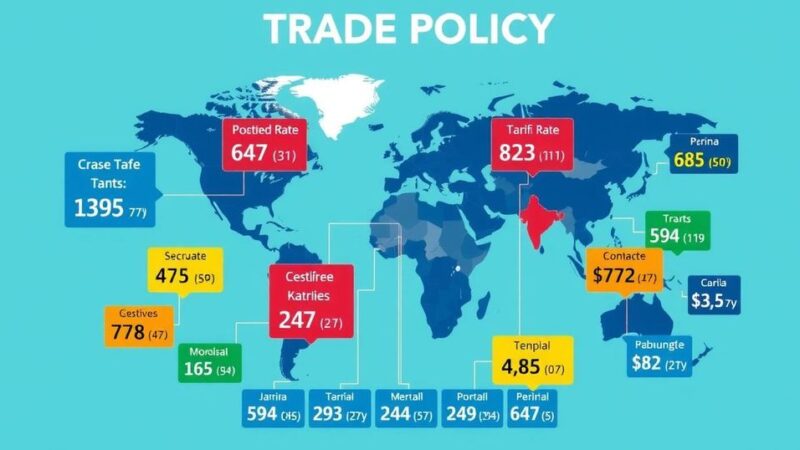Morocco’s central bank, Bank al-Maghrib, has cut its benchmark interest rate from 2.5% to 2.25% for the second time, aiming to control inflation and boost economic growth as the country prepares to co-host the 2030 FIFA World Cup. Recent rainfall promises recovery for agriculture, while adjustments in cultural practices reflect responsiveness to climate challenges.
Morocco’s central bank, known as Bank al-Maghrib, has implemented a second consecutive reduction of the benchmark interest rate, lowering it from 2.5% to 2.25%. This decision, taken during a recent quarterly policy meeting, was unexpected, as it diverged from forecasts by two major lending institutions. The central bank previously adjusted rates downward in June and December 2024.
The primary rationale behind this rate cut is the expectation that inflation will remain stable, with projections indicating a rate around 2% over the coming two years. This policy aims to enhance economic activity and employment opportunities, aligning with Morocco’s aspirations to boost investments in preparation for co-hosting the 2030 FIFA World Cup.
The nation has made significant strides in managing inflation, which has seen record levels in 2023. Recent rainfall has offered hope for the agricultural sector, which has been suffering due to droughts, potentially alleviating food inflation pressures into 2025.
In response to the severe drought’s impact on livestock, King Mohammed VI has advised citizens to abstain from the traditional sheep sacrifice typically performed during Eid Al-Adha in June. Despite facing various global challenges, Morocco continues to assert its position as an essential trade hub with strong connections to Western markets and Beijing.
In conclusion, Morocco’s recent interest rate reduction reflects a proactive approach by Bank al-Maghrib to manage inflation while stimulating economic growth. The country is making strides in agricultural recovery following drought conditions, which may alleviate future food inflation. Furthermore, cultural adaptations in response to environmental challenges indicate the government’s commitment to its citizens’ welfare amidst global trade pressures.
Original Source: www.indexbox.io






